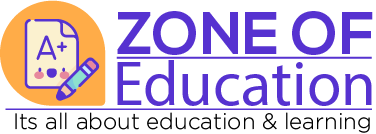If you are intrested in Study in Norway then remimber that you are in search to discover top-quality education in Norway – world-class universities, tuition-free programs, stunning landscapes, and a welcoming environment for international students.
Start your journey today!
Norway, a land of breathtaking fjords, vibrant cities, and a world-renowned education system, is increasingly becoming a top choice for international students. For aspiring scholars from Pakistan, the allure of a high quality of life, a safe environment, and innovative academic opportunities makes Norway a truly unique destination. But what does it really take to study in this Nordic gem?
This comprehensive guide will walk you through every essential step, from understanding the requirements and costs to navigating the visa process and exploring post-study opportunities, all tailored specifically for Pakistani students.
Why Choose Norway for Your Studies?
Beyond its stunning natural beauty, Norway offers a compelling package for international students:
- High Quality of Life & Safety: Consistently ranked among the world’s safest countries, Norway boasts a high standard of living, excellent public services, and a strong emphasis on well-being. Its impeccably maintained legal system contributes to a virtually crime-free environment, making it incredibly safe for international students.
- Innovation & Technology: Norway is a forward-thinking nation with a strong focus on information, technology, and innovation. It’s a global leader in telecommunications, shipping, oil and gas, high-tech goods, and fish farming, offering diverse career prospects.
- European Mobility: As a member of the European Economic Area (EEA), studying in Norway grants you the significant advantage of unrestricted travel across Europe for study, work, or other purposes, essentially making you a “citizen of the whole of Europe”.
- Welcoming Environment: The Norwegian Ministry of Education & Research actively promotes international cooperation, and over 12,000 international students, including many from India and Pakistan, are already part of its academic landscape.
Understanding Tuition Fees & Living Expenses: The Financial Reality
Historically, Norway was famous for offering tuition-free education at its public universities to all students, regardless of nationality. However, this policy underwent a significant change in June 2023.
The Evolving Tuition Fee Landscape
- New Tuition Fees: As of June 2023, the Norwegian government introduced tuition fees for students from countries outside the EU/EEA/EFTA. These fees were initially mandated to cover the full cost of education, typically ranging between NOK 150,000 and 190,000 per year (approximately €13,000 to €17,000).
- Impact & Flexibility: This change led to a sharp 80% decline in new enrollments from non-EEA students. In response, the government has proposed allowing universities greater flexibility in setting their own fees, which means institutions will have more autonomy in pricing various study programs. Important: This proposal does not mean a return to free education for non-EU/EEA students, but rather a shift in how fees are determined.
- Private Institutions: Private universities and business schools, such as BI Norwegian Business School, have always charged tuition fees for all students. These typically range from €7,000-€9,000 for undergraduate courses and €9,000-€18,000 for postgraduate courses.
- Semester Fee: Regardless of tuition fees, all full-degree students at public universities must pay a semester fee, usually €30-€60, to join the student union, which supports various student welfare services.
This means that prospective Pakistani students must now factor in tuition costs when planning their finances, as the era of universal free education at public institutions has largely ended.
Estimated Cost of Living in Norway
Norway is known for its high cost of living. For instance, the overall costs in Norway are almost 337% more than in Pakistan, with accommodation costs being nearly 680% higher.
Here’s an approximate monthly budget for a student:
| Category | Approximate Monthly Cost (NOK Range) | Approximate Monthly Cost (EUR Range) | Notes |
| Housing | 3,000 – 7,000 | 250 – 600 | Varies significantly by location; includes electricity/heating |
| Food | 2,000 – 3,000 | 170 – 250 | Groceries are expensive; look for budget brands like Eldorado, First Price, and Rema1000 |
| Student-related costs | 500 – 5,000 | 40 – 420 | Books, study materials, student union fee |
| Transportation | 450 – 500 | 40 – 45 | Local bus; student discounts often available |
| Miscellaneous/Other | 1,000 – 1,500 | 85 – 130 | Personal items, leisure |
| Total Estimated Monthly | 7,000 – 14,000 | 600 – 1,200 | (Excluding tuition fees) |
Eating out is particularly expensive; a main course in a budget restaurant can cost NOK 120-200, and a bottle of water is NOK 75-120. Students can often get discounts on transport, fitness centers, and local cafes by simply asking.
Mandatory Financial Proof for Study Permit
All non-EU/EEA/EFTA students must provide strict documentation of sufficient funds to cover their living expenses for the entire study period.
- Required Balance: For the academic year 2024/2025, the minimum required amount was NOK 151,690 (approximately €13,000 or US$14,350). For the academic year 2025/2026, this amount has increased to NOK 166,859.
- Deposit Process: Crucially, this amount must be deposited into a Norwegian bank account before submitting your study permit application. It’s generally difficult to open a Norwegian bank account from abroad without a Norwegian personal identification number. To overcome this, universities often provide a “deposit account” (e.g., INN’s Deposit Account in DnB NOR ASA) where you can transfer the required funds.
- UDI Strictness: The Norwegian Directorate of Immigration (UDI) strictly enforces this rule and typically does not accept alternative forms of documentation, such as bank statements from a home country bank or financial guarantees from relatives or other third parties. Failure to comply can lead to visa denial or significantly extended processing times.
- Tuition Fees Proof: If tuition fees apply to your program, you must also provide proof of funds to cover these fees for the first year of studies, in addition to living expenses.
- Post-Arrival: Upon arrival, after completing police registration and obtaining a Norwegian ID number (which can take about two months), you can open a personal Norwegian bank account and have the deposited funds transferred to it. Some universities may offer an advancement of NOK 20,000 via a reloadable debit card to help with initial expenses.
This strict financial requirement, especially the pre-deposit into a Norwegian account, is a significant hurdle. It means you need substantial liquid assets available for international transfer even before your visa application is processed.
Scholarship Opportunities
While the Norwegian government generally does not offer individual scholarships directly to degree-seeking students, several other options exist:
- Erasmus Mundus Joint Masters Scholarships: These are prestigious scholarships for Master’s level students worldwide, offered for programs jointly delivered by international university consortia across multiple countries.
- BI Norwegian Business School Scholarships: BI offers a Bachelor International Scholarship (50% tuition coverage) for excellent academic records in specific programs. Their Presidential Scholarships cover tuition and provide a living stipend for two years for Master of Science applicants with an ‘A’ GPA or equivalent.
- University-Specific Scholarships: Some universities, like the University of Oslo, offer international scholarships, often targeting students from partner institutions. However, institutions like NMBU generally do not offer scholarships for bachelor or master students, except for NORSTIP scholarships for students from selected partner institutions.
- Other Grants: You might find various research fellowships (e.g., Boehringer Ingelheim Fonds MD Fellowships, Cancer Research Institute Irvington Postdoctoral Fellowship) and specific grants like the Dissertation Fieldwork Grant.
Always check the specific university and program websites for the most up-to-date scholarship information and eligibility criteria.
Admission Requirements: What Pakistani Students Need to Know
Gaining admission involves meeting specific academic and language prerequisites, with particular attention to document attestation for Pakistani students.
General Higher Education Entrance Qualification (GSU List)
To be admitted to most Norwegian universities, international students must meet a “higher education entrance qualification” (generell studiekompetanse). The official GSU list outlines the specific basic education required for foreign applicants.
For Master’s programs, applicants from India and Pakistan typically need 4 years of university education to meet the general admission requirements. All foreign education is individually evaluated by Norwegian institutions.
English Language Proficiency
Demonstrating English proficiency is mandatory for English-taught programs. Commonly accepted tests include:
- IELTS Academic: Minimum scores vary, typically 5.0 to 6.5 or higher.
- TOEFL iBT: Minimum scores vary, typically 60 to 80 points.
- Pearson PTE Academic: Minimum scores vary, typically 51 to 62 points.
- Cambridge ESOL Examinations: Such as B2 First, C1 Advanced, and C2 Proficiency.
Important: Minimum scores can vary significantly by university and program. For instance, NMBU states it has higher English proficiency requirements than the general GSU list. Always check the precise requirements for your chosen course.
Exemptions: You might be exempt if you have completed at least one year of university study in an English-speaking country (e.g., USA, UK, Australia, Ireland, Canada, New Zealand) where English was the language of instruction, or if your prior Bachelor’s or Master’s degree was from a university where English was the officially recognized medium of instruction.
Academic Prerequisites and Grade Expectations
Applicants generally need a minimum average grade equivalent to a Norwegian grade C or better. This is comparable to a US ‘B’ average or a 3.00 GPA on a 4.00 scale. Meeting the minimum does not guarantee admission, as programs are competitive.
For Master’s programs, your Bachelor’s degree must include courses totaling at least 80 ECTS credits (about 1.5 years of full-time studies) in a subject directly relevant to the Master’s program. Your degree must be fully completed before application submission.
Document Preparation and Attestation: Special Focus on HEC for Pakistan
This is a critical step for Pakistani students. Officially issued transcripts and diplomas from all secondary and post-secondary education must be uploaded to the online application portals.7 All documents not in English, Norwegian, Swedish, or Danish must be translated by a government-authorized or official translator, with scans of both original and translated documents uploaded.
For Pakistani students, there are specific and crucial attestation requirements:
- IBCC Attestation: Intermediate and Higher Secondary School Certificates (HSSC/HSC) along with their Statement of Marks/official transcripts must be verified and attested by the Inter Board Committee of Chairmen (IBCC) in Pakistan.
- HEC Attestation: All university transcripts and diplomas (including Final Diploma, Degree Certificate, Result Intimation Card, or Detailed Marks Certificate) must be attested by the Higher Education Commission (HEC) in Pakistan.
- Physical Mail Requirement: After HEC attestation, physical HEC attested photocopies of these documents must be sent by post directly to the Admissions office of the Norwegian university.7 Scans of these HEC attested photocopies must also be uploaded to the online application portal. Detailed instructions for the HEC attestation procedure can be found on the HEC website.
- Original Documents: It is mandatory to bring the original educational documents to Norway for inspection upon arrival at the university. Document forgery is a serious offense and will be reported to the police.
Other General Documents: A completed application form, a verified copy of your passport, a Resume/CV (especially for postgraduate applications), and a Statement of Purpose/Motivational Letter (if requested) are typically required. Avoid submitting non-essential documents, as this can complicate the review. Incomplete applications will not be processed.
This multi-layered attestation and submission process for Pakistani students requires significant lead time and meticulous attention to detail.
Courses and Universities: Undergraduate and Master’s Programs
Norway’s universities offer a range of programs, with notable differences in English-taught options at different levels.
Undergraduate (Bachelor’s) Programs in English
Bachelor’s degrees typically last 3 years (180 ECTS credits).7 A crucial point for prospective undergraduate students is the very limited number of Bachelor’s programs available in English across Norway – only a couple dozen. For example, the University of Oslo states that all of its Bachelor’s programs are taught in Norwegian.
If you’re seeking an English-medium undergraduate education, your choices will be highly restricted. You might need to be flexible with your program choice, consider learning Norwegian, or explore other countries with more extensive English-taught undergraduate offerings.
Diverse English-Taught Master’s Programs
In stark contrast to Bachelor’s programs, Norway offers a wide array of English-taught Master’s degree programs, with over 200 available across various institutions. Master’s programs typically span 2 years (120 ECTS credits).
These programs cover a broad spectrum of disciplines, including:
- Arts and Humanities: English Language and Literature , European Studies , Childhood Studies, Creative Music Technology, Fine Art, Music Performance.
- Natural Sciences, Mathematics, and Statistics: Biology, Chemistry, Physics, Applied and Computational Mathematics, Environmental Toxicology, Marine Biology, Neuroscience, Molecular Medicine.
- Engineering, Manufacturing, and Construction: Applied Computer Science, Electric Power Engineering, Industrial Ecology, Marine Technology, Sustainable Architecture, Subsea Technology, Mechatronics and Automation, Hydropower Development, Sustainable Chemical and Biochemical Engineering, Sustainable Energy.
- Social Sciences, Journalism, and Information: Economics, Political Science, Psychology, Social Anthropology, Sociology, Globalisation and Sustainable Development, Project Management, System Dynamics.
- Business, Administration, and Law: Master of Laws (LL.M) in EU and EEA Law, International Business and Marketing, Management of Innovation and Sustainable Business Development.
- Health and Welfare: Health Management and Health Economics, Nutrition, Biomedical Sciences, Global Health, Healthy Aging and Rehabilitation.
- Agriculture, Forestry, Fisheries, and Veterinary: Agroecology, Animal Science, Ocean Resources.
Many universities also participate in Joint Nordic Master’s (N5T) and Erasmus Mundus programs, offering unique opportunities to study at multiple leading universities across Nordic or other European countries, often with scholarship possibilities.
Spotlight on Top Norwegian Universities
Norway boasts a robust higher education system with several globally recognized institutions:
- University of Oslo (UiO): Ranked 142 in QS World ranking in 2018, renowned for humanities, natural sciences, and social sciences.
- Norwegian University of Science and Technology (NTNU): A top institute, especially strong in engineering and technology, offering many international Master’s programs.
- University of Bergen (UiB): Offers diverse Master’s programs and a good environment for international students.
- UiT The Arctic University of Norway: Known for its northern location and relevant studies.
- Norwegian University of Life Sciences (NMBU): Specializes in environmental and life sciences.
- BI Norwegian Business School: A leading private business school offering specialized programs and scholarships.
- University of Agder (UiA): Has specific attestation requirements for Pakistani students.
- University of South-Eastern Norway (USN): Offers diverse programs with a focus on practical skills.
- University of Inland Norway (INN): Provides a deposit account for international students to transfer funds.
Given the new tuition fees, it’s crucial to research the exact tuition fees for your specific chosen program and university, as these costs can vary significantly.
A Step-by-Step Guide from Pakistan
The application process requires careful planning and adherence to specific procedures, especially for students from Pakistan.
Finding Your Program and University-Specific Criteria
Unlike some countries with centralized application systems, Norway generally does not have a single application portal for all universities. You’ll typically need to apply directly to specific universities and programs.1 Admission criteria can vary significantly, so meticulously check the specific requirements for each chosen program, including any country-specific prerequisites.
Application Platforms and Key Deadlines
Many Norwegian universities use a shared national application platform called “Søknadsweb”. There is typically no application fee when applying through Søknadsweb.
Application deadlines for non-EU/EEA students are notably early:
- For programs starting in August (the typical academic year start), the application period often opens in October and closes around December 1st of the preceding year. This is a common deadline for both application submission and document upload.
- For example, NMBU has a strict deadline of December 1st for new applications and all supporting documents. NTNU also sets its deadline for non-EU/non-EEA students as December 1st.
- However, some universities may have different timelines; the University of Bergen, for its Autumn 2025 intake, opens its portal on February 1st, with a final application deadline of April 15th, and a final document upload deadline of July 1st. The University of Agder’s application period for non-EU/EEA applicants is generally from November 1st to December 1st.
Crucial Tip: Begin your preparations, including document collection, translation, and attestation, significantly in advance of these strict deadlines. Late or incomplete applications will not be processed.
Submitting Documents: Specifics for Pakistani Applicants
All required documents must be uploaded to the online application portal by the specified deadline, ensuring your name is entered exactly as it appears in your passport.
For Pakistani students, remember the crucial additional step: In addition to uploading scanned versions, officially attested photocopies of Degree Certificates and Marks Sheet/Result Card from the Higher Education Commission (HEC) must be sent by post directly to the university’s Admissions office. Failure to send these physical attested copies will result in an incomplete application.
Understanding Conditional Admission Offers
Some universities, like the University of Bergen, may offer conditional admission if you are completing your Bachelor’s degree during the spring semester preceding the application year.7 If granted, you’ll need to upload your final transcript and diploma before the official semester registration deadline in Norway.
Norway Student Visa Process from Pakistan
Securing a student visa, officially known as a study permit, is mandatory for most international students planning to study in Norway for more than three months.
Study Permit vs. Visitor’s Visa
If your study program is longer than three months, you need a study permit. For shorter stays, a visitor’s visa might be required depending on your nationality.
Application Process: Online Registration and Embassy Submission
The application for a study permit must be submitted before entering Norway.
- Online Registration: Begin by registering online through the Norwegian Directorate of Immigration (UDI) website.
- In-Person Submission: After online registration, you will typically need to submit a paper application form and supporting documents in person to the nearest Norwegian embassy or consulate in Pakistan. In some cases, Norway collaborates with Swedish and Danish embassies for visa processing if a Norwegian embassy is not present.
Processing times for student residence permits can vary and may take approximately two months or more. Apply as soon as possible after receiving your admission letter.
Required Documents for Study Permit Application (from Pakistan)
When submitting your study permit application, you will typically need:
- A completed application form.
- Receipt of the application fee: NOK 5,300 (approximately US$650) or NOK 5,400.5
- A valid passport with sufficient validity.
- Two recent passport-sized photos with a white background.
- Evidence of admittance to an approved full-time education program at a Norwegian college or university.
- Proof of sufficient financial funds for the entire period of study, including funds for any accompanying family. This must be deposited into a Norwegian bank account or a university deposit account (as detailed in the “Mandatory Financial Proof” section above).
- Evidence of accommodation (e.g., rental contract).
- Evidence that you will leave Norway when your residence permit expires (often a return ticket).
- A completed and signed UDI document checklist.
- Proof of private health insurance (or EHIC for EU/EEA citizens).
Post-Arrival Formalities in Norway
Once in Norway, you must:
- Register with Police: Visit the local police station within seven days of arrival to register your presence. Fingerprints and a photo will be taken for your residence card.
- Norwegian ID & Bank Account: Acquire a Norwegian ID number and open a local Norwegian bank account. This process can take approximately two months.
Post-Study Opportunities: Work and Permanent Residency
Norway offers international students opportunities for part-time work during their studies and clear pathways for post-graduation employment and potential permanent residency.
Working While Studying
If you are granted a study permit, you are automatically allowed to work part-time for up to 20 hours per week during the semester and full-time during holidays. You cannot be self-employed.
- Finding Work: Look for vacancies on online job databases like NAV (though often in Norwegian, you can use an “English” filter). University career centers can also assist. Internships are excellent for experience, often offering study credits.
- Formalities: Anyone working in Norway needs a Norwegian identification number (D number or national identity number), a tax deduction card, and a Norwegian bank account.
Post-Study Work Visa (Job Seeker Visa)
For non-EU/EEA nationals, a separate residence permit is required to stay in Norway after studies. This “job seeker visa” allows graduates to remain for up to one year to look for full-time employment. It’s crucial to apply for this visa before your student permit expires.
- Financial Requirement: You must demonstrate sufficient funds to support yourself during this period. For 2025, the required amount is NOK 139,347 for one year.
- Work During Search: While seeking skilled work, you are permitted to work full-time or part-time in any job.
Transition to Work Visa and Pathway to Permanent Residency (PR)
Once you secure a skilled job, you can apply for a Skilled Worker visa. The job must be full-time, related to your degree, and meet a specified salary rule (e.g., NOK 473,000 in 2025). This work visa is usually valid for 1-3 years and can be renewed.
The pathway to permanent residency (PR) in Norway requires living legally in the country for a minimum of three continuous years on a residence permit, such as a Skilled Worker visa. Key requirements for PR include:
- At least three years of legal residence in Norway.
- Completion of Norwegian language training, typically to a minimum B1 level.
- No serious criminal record.
- Having passed Norwegian social studies (if required).
- Demonstrating financial self-support, with a requirement of having earned at least NOK 310,070 before tax in the past 12 months (for 2025).
Permanent residency is generally issued for two years at a time and is renewable.
Summary
Studying in Norway offers Pakistani students a unique blend of academic excellence, a high quality of life, and promising post-study opportunities. While the recent introduction of tuition fees and the stringent financial requirements present new challenges, the country’s commitment to innovation, safety, and clear pathways to permanent residency make it a compelling long-term prospect.
Meticulously planning your finances, diligently preparing your documents (especially the HEC attestation for Pakistan), adhering to early application deadlines, and embracing the opportunity to learn Norwegian, you can unlock a world-class education and a potentially rewarding future in this beautiful Nordic nation. Your journey to Norway starts with thorough research and proactive preparation – are you ready to take the leap?






